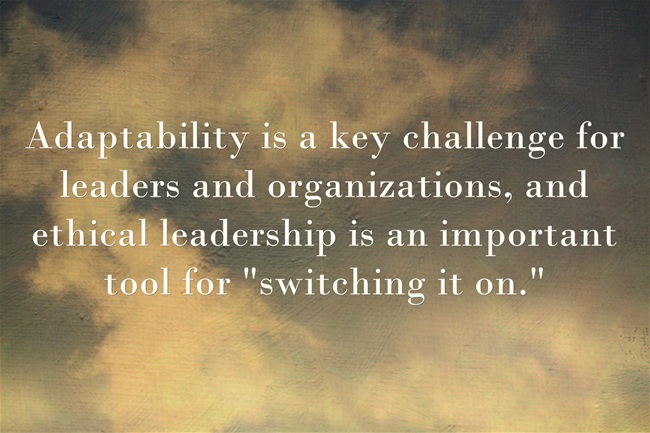By Linda Fisher Thornton
The post “Leader Competence: Will It Be A Multiplier or Divider?” generated some great discussion on social media. Here’s a quote from the post:
“Leader competence is either going to be a multiplier or a divider. When you have it, you multiply performance and trust, with exponential results. Without it, you divide your possible results by the incompetence factor.”
After reading the post, one reader requested that I write more on the topic. This week I’m digging deeper into the multiplying and dividing effects of leader (in)competence, looking at how a leader’s ethical competence impacts trust, people, bottom line results and organizational adaptability:
Impact on Trust
Competent ethical leaders intentionally build trust.
Incompetent leaders damage trust (and they may or may not be aware of it/and they may or may not care).
Impact on Bottom Line Results
Competent ethical leaders set the stage for people to do great work and then get out of their way. They support and enable great performance. This releases powerful pent-up energy within the organization that improves employee satisfaction, retention and productivity and fuels positive bottom line results.
Incompetent leaders can confuse, misdirect, distract and un-empower people, and the resulting loss of productivity reduces bottom line results. How? It increases turnover and reduces employee satisfaction and productivity, which erodes customer service quality and customer retention (and so on).
Impact on People
Competent ethical leaders know that their success depends on enabling the success of others. It is at its core about service and support and not prestige or privilege.
Incompetent leaders may mistakenly believe that leadership is all about them, and people don’t usually trust an incompetent leader enough to tell them that THEY are the problem. Employees may have to risk their wrath to get work done the right way when a leader is determined to use old thinking, old behavior and old leadership approaches that don’t work in a global society.
Incompetent leaders divide people by not communicating clear standards, giving all the good projects to “favorites,” or playing games with people to try to maintain the fragile illusion that they are “in charge.” Ethically competent leaders know that any illusion that they are “in charge” is not only false, it is a “brand-killer,” a “trust killer” and a “results killer.”
Impact on Adaptability
Adaptability is the key to an organization’s survival, and in the midst of accelerated global change and uncertainty, it provides a critical competitive advantage. Leaders who make it a priority to stay competent see the need to help others stay competent, and that helps everyone respond to change quickly.
Incompetent leaders don’t stay current, and since they don’t stay current, they probably don’t realize (or don’t care) that others in their organizations need to stay current. They do things that competent ethical leaders know are counterproductive and harmful. The lack of leader awareness and failure to stay current creates a DRAG on the group and the organization that can make adaptability next to impossible.
The Equation
Ethical leadership competence is an adaptability enabler, people uniter and results multiplier. Ethical leadership incompetence is an adaptability reducer, a people divider and a results diminisher.
Adaptability is a key challenge for leaders and organizations, and ethical leadership is a critical tool for “switching it on.”
![]()
Ethical Leaders See Their Choices Through All 7 Lenses
Includes case examples and questions.
Click the book cover for a preview.
Unleash the Positive Power of Ethical Leadership®
©2017 Leading in Context LLC



Reblogged this on Matthews' Blog.
LikeLike